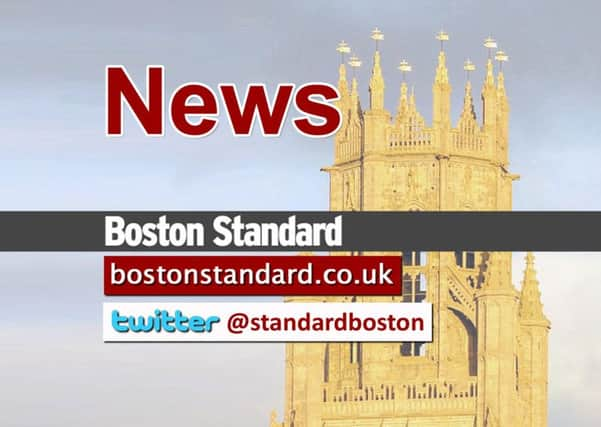£1.8m drainage funding criticised


At Boston Borough Council’s recent Full Council meeting, which saw the authority agree a rise in its share of the council tax bill of 2.86 per cent, concerns were raised that more needed to be done to lobby Government to deal with the increasing costs of the Internal Drainage Boards (IDBs).
Councillors were told that 51 per cent of the authority’s tax takings went to the IDBs.
Advertisement
Hide AdAdvertisement
Hide AdCoun Richard Austin said: “The IDB precept is now running at £1.8 million of our budget and rising. We have no control over this item and it’s an ever-growing proportion of our budget.
“Drainage and protection is crucially important to us, of course, but we district councils have to find funding for the IDB and the Government funding formula does not take this into account.”
Council leader Coun Peter Bedford said no opportunity was missed to make the case for increased funding for Boston to ministers.
He said there had been meetings with the drainage boards, adding: “But it’s difficult. They have a job and tell us do we want wet feet or dry feet?”
Advertisement
Hide AdAdvertisement
Hide AdFollowing the meeting, the Witham Fourth and Black Sluice Internal Drainage Boards, which oversee maintenance of more than 1,400km of watercourses and 41 pumping stations, arranged to meet with the council.
In a statement to The Standard, chief executives Peter Bateson and Ian Warsop said: “These assets are critical to convey and pump the excess rain that falls onto the district and into the Haven to protect property and land in the borough.”
The boards are financed through the collection of rates from land owners and properties in the borough.
Land owners are billed directly but developed properties pay through the council tax bill, which is then passed onto the IDBs through a special levy payment.
Advertisement
Hide AdAdvertisement
Hide AdThe statement said: “It is important to understand this point as IDBs are not ‘charging’ the borough, they are a collecting agent.
“However, the reduction in the Government’s central support grant to local councils has focused attention on this payment to IDBs.
“Whilst both boards (50 per cent of which are local councillors) sympathise with the financial pressure on local government, we do have a responsibility to reduce flood risk in the borough.
“Despite Consumer Price Index running at 2.6 per cent over the last 10 years, IDB rate increases have averaged 1-2 per cent. We are therefore managing our costs effectively and this is evidenced by the £2.9m of Government grants that have been successfully applied for over the last five years, to help reduce the burden on local ratepayers.
Advertisement
Hide AdAdvertisement
Hide Ad“We have also lobbied Government on the unfairness of the intended 100 per cent retention of business rates for rural local authorities and will continue to work with Boston Borough Council and others to manage the flood risk for ratepayers alongside the cost of doing so.”
The 2017/18 precepts for an average Band D property are as follows (percentage rise): borough council £178.29 (2.86 per cent), county council £1,173.42 (3.95 per cent), Police and Crime Commissioner £205.47 (1.97 per cent) and average parish council £53.05 (109.27 per cent).